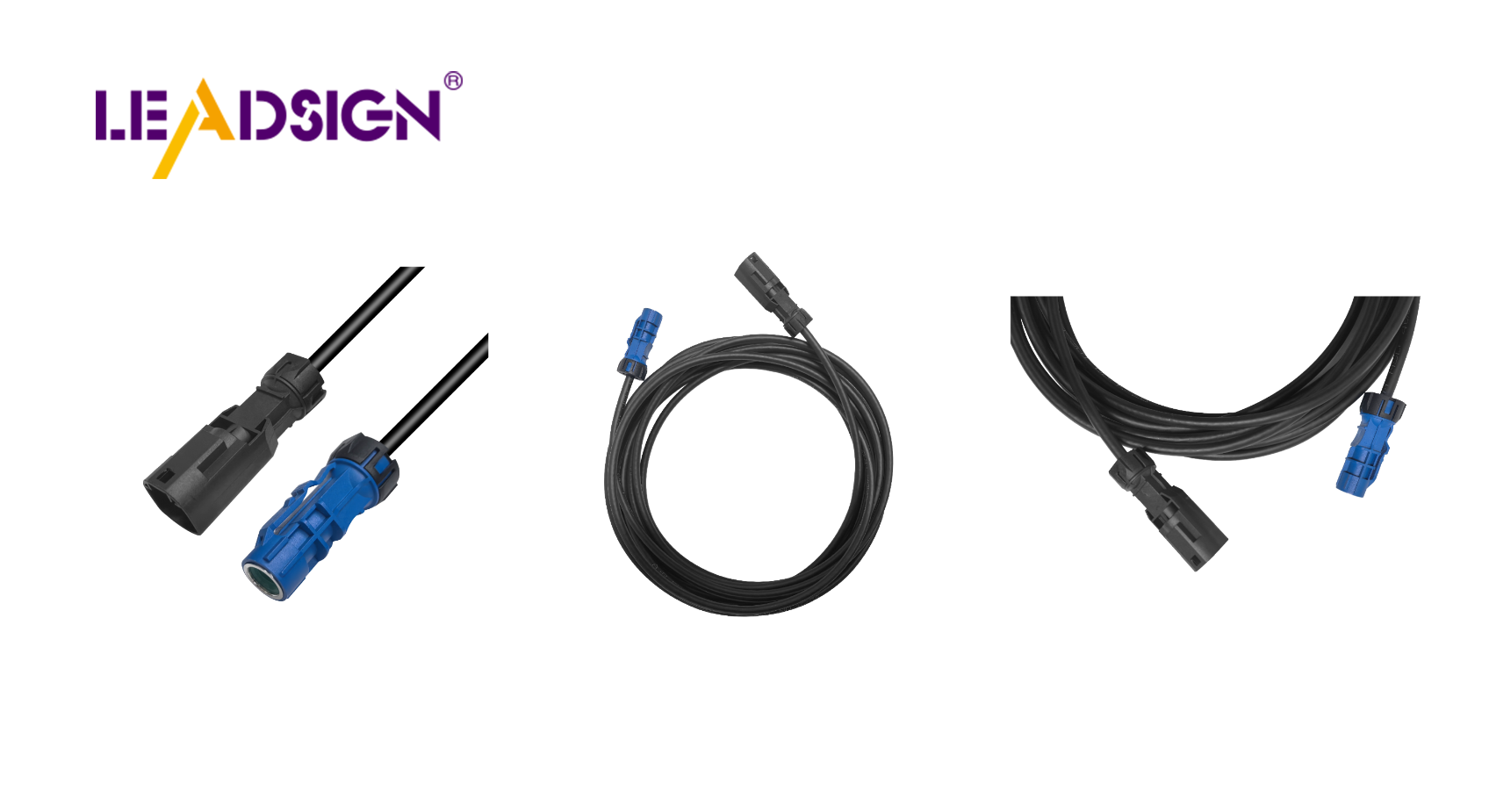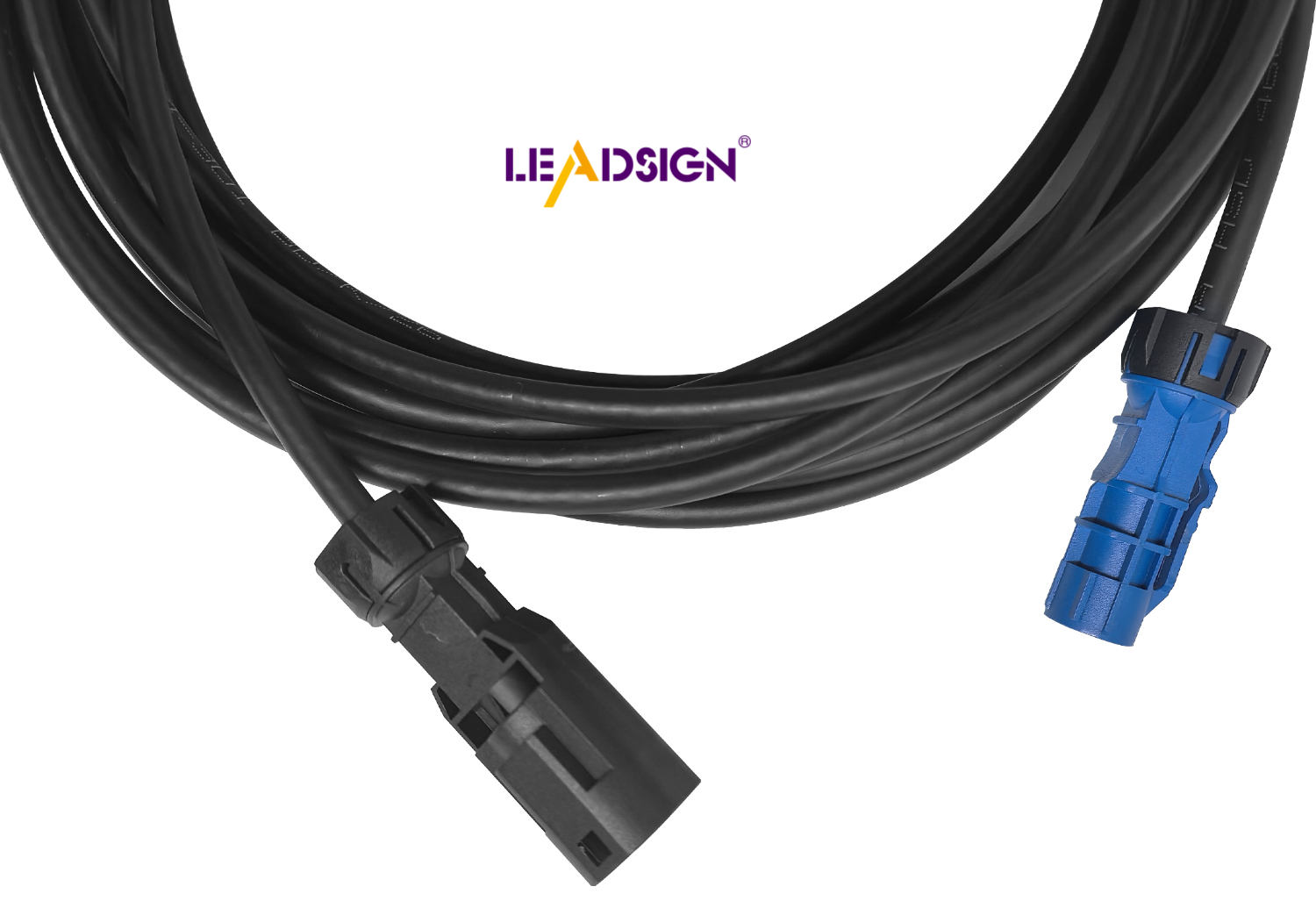Simple Steps to Maintain Your Car Harness Connectors

Taking care of your car's auto harness connectors is very important. These tiny parts help your car's electrical systems work well. Cleaning them often keeps your car safe and avoids costly fixes. With some care, they last longer and prevent road problems.
Key Takeaways
Check your car's connectors often for dirt, rust, or damage. Finding problems early saves money on repairs.
Apply dielectric grease to stop moisture and rust. This easy step helps connectors last longer.
Clean connectors using safe items like rubbing alcohol. Cleaning them well keeps your car's electrical system working properly.
Why Connector Maintenance Matters
Stopping electrical problems in car connectors
Car connector issues can cause big problems. You might see flickering lights, broken signals, or power loss. Things like rust, shaking, or heat can break the connectors. For example, if your brakes stop working, it could be dangerous.
Common reasons for these problems are weak connections, rust, and overuse. Dirt and water can also harm connectors. Cleaning and checking them often keeps your car’s systems working well.
Making car connectors last longer
Taking care of car connectors helps them work for years. Clean them and check for damage to stop wear. Keeping them dry and dirt-free prevents rust and damage. This saves you from replacing them often.
Good grounding is very important. It keeps connections steady and avoids power problems. By maintaining connectors, you stop problems before they start.
Saving money and staying safe
Ignoring connector care can cost a lot. Small problems, like loose wires, can become big repairs. A bad wiring harness might turn on the check engine light, costing you money.
Fixing small issues early saves cash and avoids danger. Broken connectors can hurt your car’s performance and make driving unsafe. Regular care keeps your car safe and saves money.
Simple Maintenance Steps for Auto Harness Connectors

Checking connectors for damage or dirt
Look at your connectors often to check for problems. Watch for dirt, rust, or loose parts that can cause issues. Use a magnifying tool to see small details clearly. Clean the connectors with 99% isopropyl alcohol and a soft cloth. This helps find problems early and saves money on repairs.
Cleaning connectors the right way
Cleaning keeps connectors working well. Blow away dirt with air or use a soft brush. Wipe them gently with an alcohol swab or clean cloth. Don’t tighten connectors too much while cleaning. Use covers to keep them safe from water and heat. Add a small amount of grease to stop rust. Clean connectors last longer and work better.
Using coatings to stop rust
Rust can harm connectors, especially in wet places. Add coatings to protect them. Nickel, gold, or tin coatings work well. You can also use special paints like epoxy to shield them. Some coatings fix themselves if scratched. These steps keep connectors safe from water and salty air.
Keeping connections tight and secure
Loose connectors can cause electrical problems. Check for loose parts and clean them to remove dirt. Look for any damage and fix it quickly. Don’t tighten connectors too much to avoid breaking them. Grease can help protect against water and rust. Tight connections keep your car running smoothly.
Common Problems and Fixes for Car Connectors
Spotting and fixing rust on connectors
Rust is a common issue with car connectors. Look for:
Metal parts that have changed color.
Rusty spots on the surface.
White powder around the connector.
To fix rust, clean the area first. Use strong materials like stainless steel or titanium to replace damaged parts. Add protective layers like special coatings to stop more rust. Clean often and keep moisture away to avoid rust coming back.
Tip: Check for rust during regular car checkups. Finding it early avoids bigger issues.
Repairing loose or unplugged wires in connectors
Loose wires can stop connectors from working. Bent or misaligned pins are often the cause. Gently move the connection to check for these problems. Align pins properly when installing to prevent this issue.
If wires are loose, secure them right away. Tight wires help connectors work well.
Changing broken or damaged connectors
Sometimes, connectors are too broken to fix. Replacing them is the best choice. Follow these steps to replace connectors:
Find the broken system, like lights or sensors.
Check the wiring for rust or damage.
Test the system with a multimeter.
Take out the broken connector and clean the pins.
Use tools like crimpers to install new parts.
Note: Always use grease on new connectors to stop rust and keep them working longer.
Finding and fixing bad electrical connections
Bad connections can cause flickering lights or sensor problems. Start by checking for dirt, rust, or damage. Use tools like scanners and multimeters to test the system.
Check ground connections carefully. Loose or rusty ground straps can cause issues. Clean them with a brush and replace if needed. Use waterproof connectors in wet areas.
Pro Tip: Clean and check your connectors often to avoid problems. Preventing issues is easier than fixing them.
Pro Tips for Electrical Connector Maintenance
Using grease to block moisture
Dielectric grease helps keep water away from connectors. It forms a shield to block dirt and dust. This grease also stops rust by sealing wire openings. It prevents signal problems by stopping oxide buildup. It also protects against shaking that loosens connections. Adding a little grease during checks improves your car’s wiring.
Avoiding too much electrical load
Too much load can harm your car’s electrical system. Learn your car’s power limits to avoid this. Plugging in too many devices can cause overheating. Check your system often to find overloads early. If unsure, ask an expert for help. Keeping the load balanced protects connectors and saves money.
Checking for dirt or damage often
Regular checks keep connectors working well. Look for bent pins, rust, or cracks. Use a magnifier to see small problems. Measure resistance to check grounding and pressure. Advanced tools like thermal cameras can find hot spots. Frequent checks stop failures and keep connectors in good shape.
Using safe cleaners for plastic parts
Use plastic-safe cleaners for delicate connectors. Strong chemicals like acetone can harm plastic and rubber. These special cleaners protect materials while cleaning them. Choosing the right cleaner keeps connectors strong and clean. This simple step ensures your car’s electrical system works well.
Caring for your car's electrical connectors is very important. Regular checks help find small problems before they get expensive. Easy tasks like cleaning, checking, and grounding can help a lot. Doing this often saves money, prevents stress, and keeps your car safe. Fix issues early instead of waiting for bigger problems!
FAQ
How often should you check your car harness connectors?
Check them every three months. Regular checks find dirt or rust early. This prevents loose connections and bigger problems from happening.
Can you use any grease on connectors?
No, only use dielectric grease. It blocks moisture and stops rust. It also keeps electrical signals working. Regular grease can harm connectors, so avoid it.
What tools do you need for connector maintenance?
You need a soft brush, alcohol wipes, and dielectric grease. A magnifying tool is also helpful. These tools clean, check, and protect your connectors well.
See Also
Understanding Fakra Connectors' Role In Honda Cars
A Comprehensive Overview Of Fakra Connectors For Honda
Enhancing Automotive Performance With HFM Connectors

